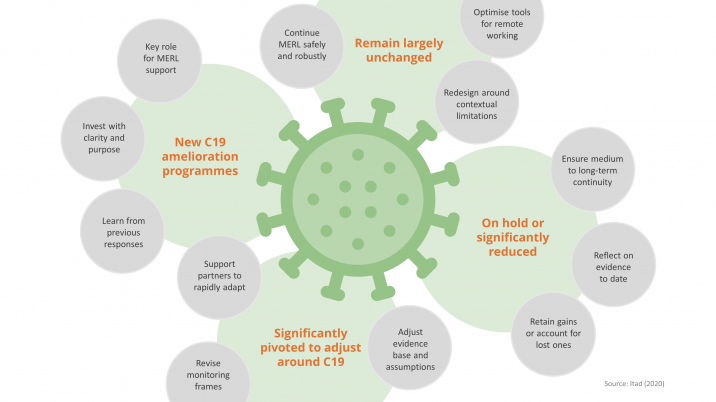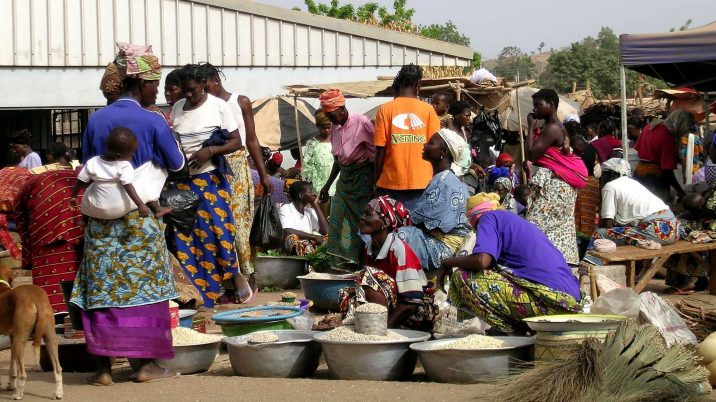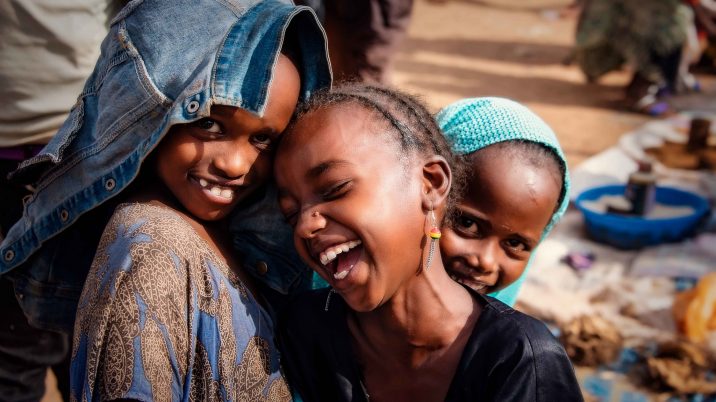Poverty and livelihoods
Our work seeks to understand what works in which contexts to best enable people and communities to enhance their capabilities, assets and activities. From understanding how social protection can act as a safety net for increasing human potential, and protect vulnerable people from risks and shocks, to measuring the impact of integrated development programming, our work helps to ensure interventions maximise their impact and support vulnerable people.
Use the filters below to explore our work in poverty and livelihoods.
Filter content:

Development of key performance indicators – Final Report
BEIS (Department for Business, Energy and Industrial Strategy) spends part of the overseas aid budget on research and...

Research for Development indicators: A review of funder practice
The Newton Fund and the GCRF are managed by BEIS (Department for Business, Energy and Industrial Strategy) to promote research...

Evaluation of the UK Caribbean Infrastructure Fund
Investment in infrastructure across the Caribbean has supported growth, trade and created new jobs. Ongoing investment is...

Evaluation of the World Food Programme’s Gender Policy
Without equal opportunities, access to resources and representation for all, hunger will not be eliminated. The goal of the...

Evaluation of the World Food Programme Gender Policy (2015-2020)
The WFP (World Food Programme) Gender Policy (2015-2020) was approved in May 2015. The evaluation provides evidence, analysis...

Evaluation and Learning Partner: Karo Kura ‘SAGE’
Adolescent girls can face multiple and interrelated disadvantages in Sierra Leone. Purposeful’ s new safe spaces programme...

Nepal Rural Access Programme – CONNECT Review (Phase 1)
CONNECT is a component part of the Nepal Rural Access Programme Phase 3 (RAP3), one of the longest-standing and largest DFID...

Mugu-Humla Link Road Household Baseline Survey (2019)
This report provides the results of two rounds of household surveys conducted between May and July 2019 that together provide...

Nepal Rural Access Programme – CONNECT Component Review
CONNECT is a component part of the Nepal Rural Access Programme Phase 3 (RAP3), one of the longest-standing and largest...

Continuing results in development:
the importance of evidence during COVID-19
The COVID-19 (C19) pandemic has had profound effects on lives around the world and will continue to do so for years, if not...

Developing indicators for the UK’s aid spend on research and innovation (GCRF and Newton Fund)
BEIS (Department for Business, Energy and Industrial Strategy) spends part of the overseas aid budget on research and...

Evaluation of the Adaptive Social Protection in the Sahel Programme
Poor and vulnerable people face increased shocks and stresses to their livelihoods. These can be global, such as financial...

Independent Evaluation of the UNICEF Ethiopia, Adolescent Nutrition Wash Education Joint Programme
Across the world, it is now recognised that adolescence is an important second window of opportunity for physical and...

RAP-3 Endline Impact Assessment Report 2019
The independent Monitoring, Evaluation and Learning component of the third phase of DFID Nepal’s Rural Access Programme...

School Health and Nutrition Portfolio Evaluation for Dubai Cares
Millions of school-age children are affected by serious, yet easily treatable and preventable, illnesses, which inhibit their...

Evaluation of the World Food Programme’s Bangladesh Country Strategic Plan
Itad is evaluating the World Food Programme’s (WFP) Country Strategic Plan (CSP) for Bangladesh between 2016 and 2020,...

